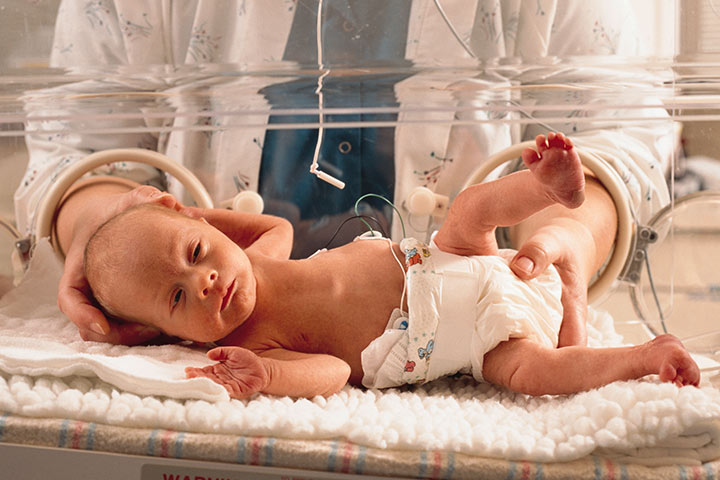Statistics show that about 5% of people in the United States experience a seizure at some point in their lives. Interestingly, very young children and newborns are at a greater risk. You experience a seizure when an abnormal electrical activity takes place within the cells in your brain. This disrupts the normal electrical signals of your brain. However, seizures in babies could be due to other reasons. Some contributing factors are brain disorders, birth trauma, and chemical imbalances.

How Do You Know If Your Babies Have Seizures?
Seizures in newborns are usually different as compared to seizures in adults and even older children. In most cases, the seizures are fragmentary because your newborn's brain is still developing. Here are some signs suggesting that your baby is having a seizure:
- Your baby may have stiffening or jerking of an arm or a leg. The movement can alternate from side to side.
- Your baby's upper body may jerk forward or their legs may jerk up toward their belly.
- Your baby's breathing, facial expression and heart rate may change.
So many things make it difficult to confirm if your baby is having a seizure. One big issue is that it is hard to assess impairment of responsiveness when your baby has a seizure. Moreover, it is also difficult because even healthy babies can have sudden, brief jerks. They may also have sudden mouth movements that might make you suspect that they are experiencing a seizure.
When in doubt, you should go talk to your doctor. They may suggest a diagnosis of epilepsy, especially if the behavioral changes in your baby are different from children of the same age. They may also suggest a diagnosis of epilepsy if your baby experience repeated episodes of similar changes in their behavioral features.
However, it is important to keep in mind that just because your baby makes a sudden movement with their legs or arms, it does not mean your baby is having a seizure. Babies are likely to stiffen their back, legs, and arms when they are startled because of a bright light, loud noise, or even after removing support of their head. This is called the Moro Reflex and is usually present until your baby is 3 months old, but it may be present in its incomplete form until your baby turns 5 months.
What Causes It?
You will have to work with a pediatric neurologist to determine the underlying cause of seizures in babies. If your baby has epilepsy before the age of 1 year, it could be due to the following reasons:
- It could be the result of a newborn illness, such as hemorrhage, infection, or lack of oxygen.
- It could be due to abnormal brain development before birth.
- It could be due to a genetic disorder.
- It could be the result of an infection of the brain called encephalitis or due to meningitis.
In many cases, it is not possible to pinpoint the exact cause of seizures in babies. This is especially true when a brain injury causes seizures. Moreover, a viral infection in the mother could lead to the development of seizure disorders in infants.
In rare cases, seizures in infants and newborns are due to a deficiency of vitamin B6. While it can be treated easily, it is usually difficult to diagnose early. Your doctor may give your baby vitamin B6 to see if there is any improvement in seizures.
What to Do?
Be sure to talk to your doctor if you suspect your baby is experiencing seizures. It is an even better idea to take a video when your baby has a seizure. It will help your doctor determine if your baby really needs medical attention or those jerking movements are normal. Before going to your doctor, be sure to have some information about how long each episode lasts and where the seizure usually starts (legs, arms, or eyes). Whether or not it spreads to other body parts is another important piece of information you need to give to your doctor. Be sure to tell your doctor about what the movement looks like when your baby has a seizure – it could be jerking, staring, or stiffening movement.
While it can be terrifying to see your little angle battling with a seizure, you should not lose hope and ensure that you do not leave them alone to lower risk of injuries. Keep hard objects out of their reach and never try to place anything in your baby's mouth in case they are having a seizure. You should seek immediate medical assistance if your baby turns blue, has breathing difficulties, or seizes for more than five minutes.
Getting in touch with your doctor is important because they will consider all the signs and may order an EEG or another diagnostic test to check the electrical waves of the brain. Sometimes, an imaging test like a magnetic resonance imaging scan may also help.
What Tests May Be Done When You Are at the Hospital?
As mentioned already, your doctor may order imaging tests to get a better idea about the activity happening in your baby's brain. They may order other tests depending on your feedback and your baby's medical history. For instance, your doctor may order urine or blood tests to diagnose any metabolic problem or chemical disorder. They may recommend chromosomal studies to find genetic disorders or opt for a spinal tap to collect evidence of chemical disorder or infection.
An infant's MRI can also tell a lot about any abnormality in the structure of their brain. However, your doctor may repeat the scan if it looks normal during the first few months because some abnormalities appear around the age of 1 year. They may also use the lumbar puncture technique to help collect a sample of cerebrospinal fluid. The procedure is quite painless, but your doctor may sometimes decide to use intravenous sedation as well.